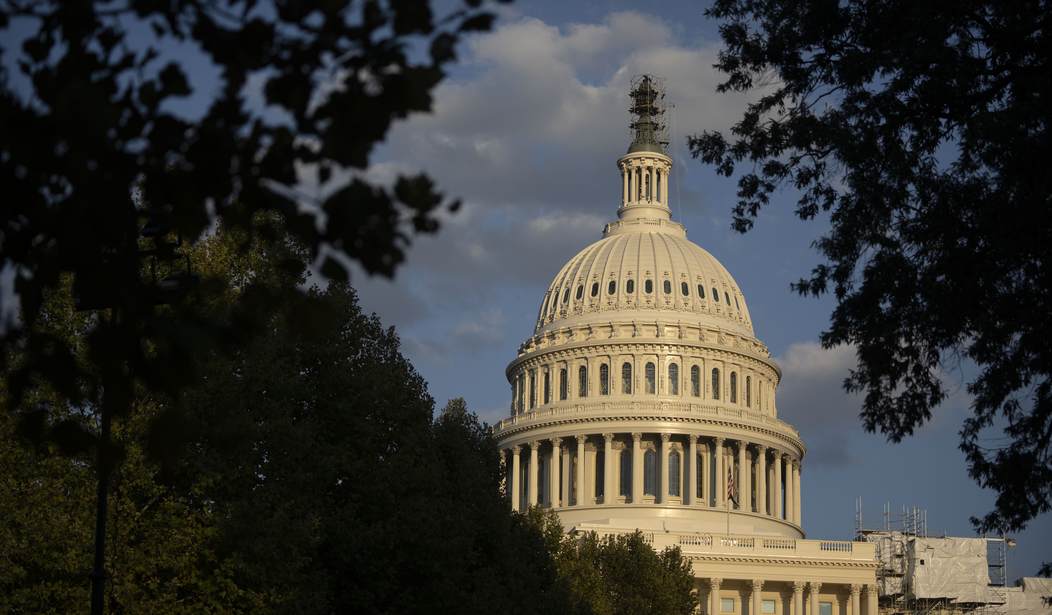If you click on the HillFaith website — and I encourage you to do so early and often, as they used to say about voting in Chicago — you will find a new regular feature, Faith of the Founders (FOTF), which I devoutly hope the thousands of regular visitors to the site, including especially those who are congressional aides working on Capitol Hill, will read.
The plain purpose of FOTF is to share facts about the importance of Christian faith to the Founders generation in a way that is complimentary to HillFaith's first purpose, that of sharing the Gospel of Jesus Christ with the over 12,000 congressional aides who constitute one of the most influential, but least visible groups in the nation's capital, in shaping the laws all of us must live under today.
As we saw previously in Part 1 and Part 2 of this three-part series, the Christian faith was a defining factor, though not the only one, in shaping how most of the Founders understood the importance of individual liberty, republican government, and the future of the American nation.
This definition was so deeply woven into the political culture of the Revolutionary and Constitutional periods that one can see its influence in how such famous non-Christians like Thomas Jefferson and Benjamin Franklin put forth their views.
Tragically for the nation, however, our nation's educational system long ago ceased teaching successive generations of American children the whole truth about the founding principles that underlay the nation in which they were highly blessed to have been born. This is especially so today among the most highly educated young folks in the political communities, including congressional aides.
Thus, the purpose of FOTF is to introduce the many congressional aides who read HillFaith from time to time to examples of the abundant evidence of the role of faith in our nation's founding and the principles by which it is governed under the Constitution.
Once or twice a week, posts will appear on HillFaith that focus on a quote from a particular member of the founding generation that demonstrates the importance of their faith to their political views and activities. Let the words of the Founders speak for themselves.
Unfortunately, even the mere mention of the word "Christian" in the enlightened circles of the American media, corporate, non-profit, and political elites these days typically sparks reactions that are either intensely hostile or openly and unmercifully insulting.
Here's something else that reaction will be — full of babbling about "Christian Nationalism" and "Christian Dominionism," while utterly lacking in any understanding of the actual facts about the role of faith in the American founding.
Here's an example from a February 2024 NPR broadcast of an interview with an "expert" professor, Brad Onishi, whom host Terry Gross describes as one who "not only studies Christian nationalism. He used to be part of that movement."
For Onishi, Christian Nationalism is a sinister evil that has infiltrated the highest levels of American government:
One of the things that's true about our Congress is that it is disproportionately Christian. Now, there are many different types of Christian people in our Congress from various denominations. However, if we look at the GOP and we look at the tenets of the party's policies and its approach to the upcoming elections, we find core Christian nationalist ideals in that platform.
And we find many, many, many members of Congress from the GOP who support those principles. So from outgoing Speaker Kevin McCarthy to current speaker Mike Johnson, all the way to senators and other members of the House, there are many folks who I would describe as Christian nationalists in the United States Congress.
And what, according to Onishi, are the principles of Christian Nationalism?
Christian nationalists take an approach to their Christianity that says it should have an undue influence on our government, on our economics, on our culture, and that it is by dint of our history, the religious faith that is meant to be privileged in our public square. With that said, there are different kinds of Christian nationalists and different ways that people manifest their understanding of the term.
But when it comes down to it, if we all sit down as Americans at a table and there are people from different backgrounds, different ethnicities, different faiths, and someone who is a Christian says, just by being at this table, I should have a special place, well, to me, that's Christian nationalism because you're saying that somehow this country is yours in a way that it is not for everyone else. And to me, therein lies the problem.
Similarly, writing in Christianity Today, Georgetown University Professor Paul Miller describes Christian Nationalism in these terms:
Christian nationalism is the belief that the American nation is defined by Christianity, and that the government should take active steps to keep it that way. Popularly, Christian nationalists assert that America is and must remain a 'Christian nation'—not merely as an observation about American history, but as a prescriptive program for what America must continue to be in the future.
There may be some people somewhere in this great and vast country who think their religious faith entitles them to a "special place" at the national table or who advocate "active steps" to impose their faith on everybody else, but such sentiment is found nowhere among the Founders who signed the Declaration of Independence and wrote the Constitution.
And yes, somewhere in the Heavenly realm, the founder of Christianity Today, the Rev. Billy Graham, must be scratching his head in wonder at the absurdities that today regularly appear in his magazine that was once the flagship of evangelical faith and comment.
Miller also, almost as an aside, offers an observation that is key to understanding what the Left is doing with the increasingly vocal campaign against this allegedly fast-spreading conspiracy of "Christian Nationalism."
According to Miller, "the term 'Christian nationalism,' is relatively new, and its advocates generally do not use it of themselves, but it accurately describes American nationalists who believe American identity is inextricable from Christianity."
The term is new because it was totally unknown until recent years when activist professors, journalists, and non-profit politicos adopted it as a shorthand smear of anybody who, to cite just one recent example, criticized governors like California's Gavin Newsom for closing Christian churches while leaving bars, strip clubs, and other "essential businesses" open during the COVID-19 Pandemic.
The same thinking cites people who want to "Make America Great Again" as dupes of the "Christian Nationalism" conspiracy, as well as pro-lifers, home-school advocates, opponents of the growing federal Political Censorship Complex, and, sooner or later, pretty much anybody of independent mind who rejects Leftist nostrums.
The term "Christian Nationalism" is, to put it bluntly, yet another way the Left continues its long-running campaign to discredit all who still insist that America occupies a unique place in the history of nations as the great refuge for and incubator of individual liberty, freedom of speech and thought, and limited government. You know, all those values that move thinking people to reject utterly the Left's agenda.










Join the conversation as a VIP Member